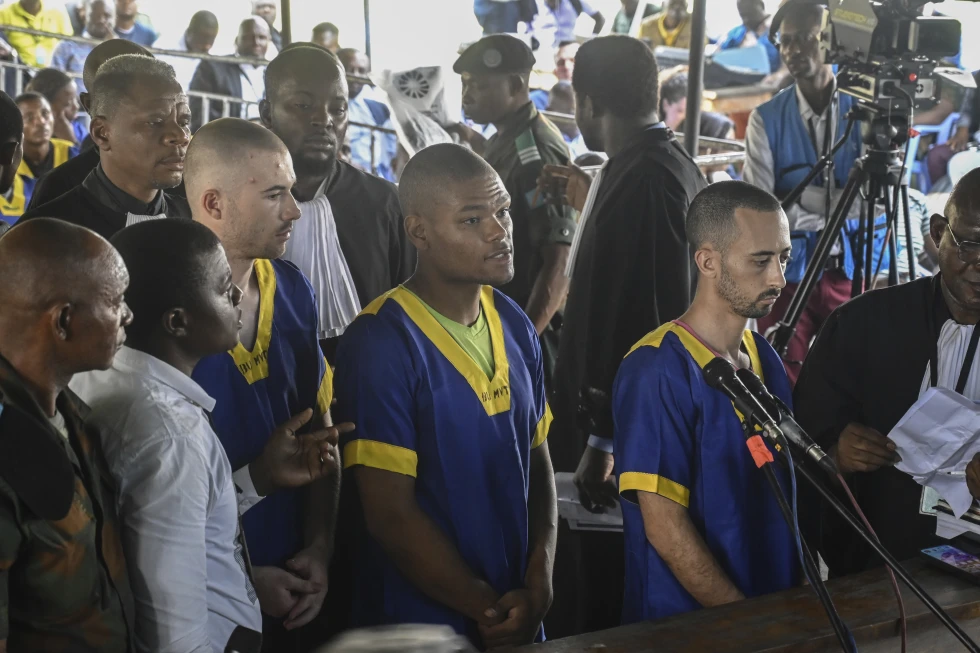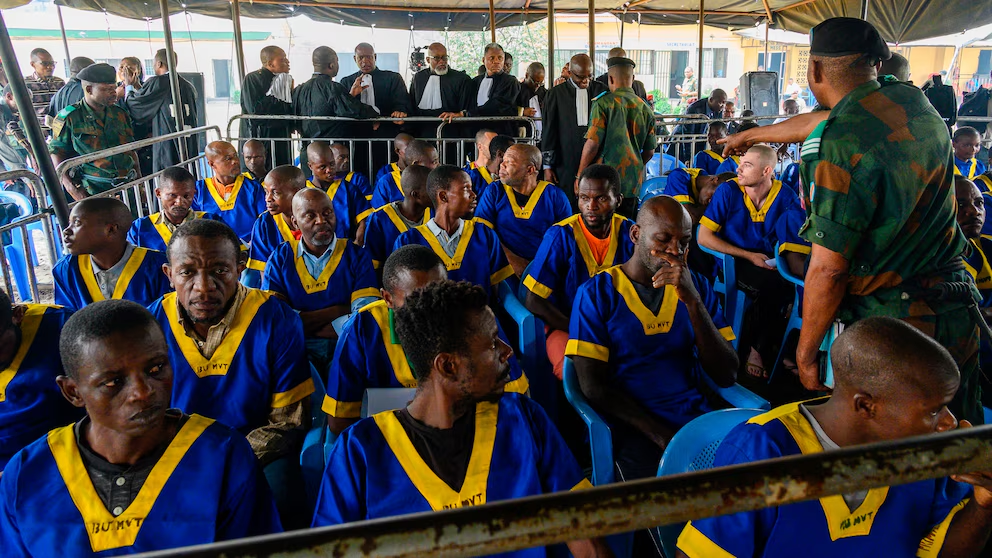A military court in the Democratic Republic of Congo handed down death sentences Friday to 37 people, including three American citizens, after convicting them of participating in a failed coup attempt against President Felix Tshisekedi’s government.

The verdicts, delivered in an open-air military court and broadcast live on national television, mark a significant escalation in Congo’s approach to political dissent and have drawn international attention to the country’s justice system.
Among those sentenced were a British national, a Belgian, and a Canadian, alongside several Congolese citizens. The charges included terrorism, murder, and criminal association stemming from a botched coup attempt in May led by Christian Malanga, a little-known opposition figure.
The court acquitted 14 individuals in the same trial, which began in June. All defendants have the right to appeal the verdict.
The coup attempt, which targeted the presidential palace and a close ally of President Tshisekedi, resulted in six deaths. Malanga was fatally shot while resisting arrest after live-streaming the attack on social media, according to the Congolese army.
Marcel Malanga, the 21-year-old American son of Christian Malanga, was among those convicted. His mother, Brittney Sawyer, has maintained her son’s innocence, stating he was merely following his father, who considered himself the leader of a shadow government in exile.
The other two Americans sentenced were Tyler Thompson Jr. and Benjamin Reuben Zalman-Polun, 36. Thompson’s family claims he traveled to Africa from Utah with the younger Malanga for what they believed was a vacation, with no intentions of entering Congo or engaging in political activism.

Zalman-Polun reportedly had connections to Christian Malanga through a gold mining company established in Mozambique in 2022, according to official Mozambican government publications and reports from the Africa Intelligence newsletter.
Last month, military prosecutor Lt. Col. Innocent Radjabu called for death sentences for all defendants, except one suffering from “psychological problems.”
The sentences come in the wake of Congo’s recent reinstatement of the death penalty, lifting a moratorium that had been in place for over two decades. This move reflects the government’s struggle to curb violence and militant attacks across the country.
The case has raised concerns among human rights organizations and the international community about the fairness of Congo’s military justice system and the country’s use of capital punishment. It also highlights the complex political landscape in Congo, where allegations of coup attempts and political instability remain prevalent.
As the defendants prepare to appeal their sentences, the case continues to draw scrutiny from international observers, potentially impacting diplomatic relations between Congo and the countries whose citizens have been sentenced.
The U.S. State Department has not yet commented on the verdicts, but the case is likely to prompt diplomatic interventions on behalf of the American citizens involved.



